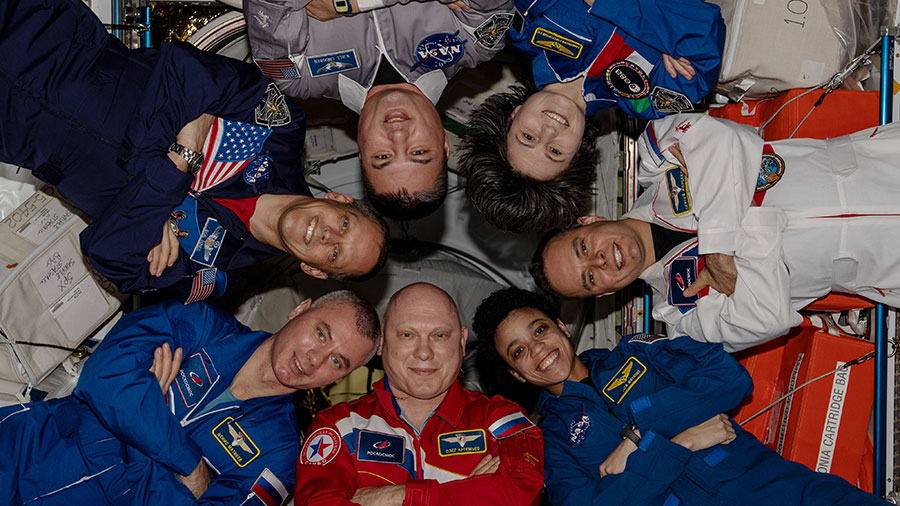Biomedical Research in Space Today Benefits Astronauts and Earthlings

International Space Station studies about wound healing and cardiology kicked off the week for the Expedition 67 crew following last week’s departure of a U.S. resupply ship. A variety of other space research, spacesuit cleaning, and maintenance rounded out the day for the seven orbital residents.
Four astronauts spent the majority of the day on Monday exploring surgical techniques to heal wounds in microgravity. The quartet, including Kjell Lindgren, Bob Hines, and Jessica Watkins, all from NASA, with Samantha Cristoforetti of ESA (European Space Agency), worked throughout the day inside the Kibo laboratory module conducting research operations in the Life Science Glovebox. The medical study may provide advanced skin healing therapies both in space and on Earth.
Lindgren then installed an AstroPi science computer in the Harmony module where Cristoforetti would adjust its camera lens allowing European students to take night time photography of the Earth below. Watkins recorded video of the AstroPi activities and downlinked it for viewing by the participating students on Earth. Hines checked fluids and plants growing for the XROOTS botany study that uses hydroponics and aeroponics techniques to promote space agriculture.
The SpaceX Dragon resupply ship completed its cargo mission after 34 days attached to the space station on Friday. It undocked from the Harmony module’s forward port at 11:05 a.m. EDT and parachuted to a splashdown off the coast of Cape Canaveral, Florida, on Saturday at 2:53 p.m. Shortly afterward, support personnel retrieved the commercial cargo craft, packed with scientific cargo and station gear, floating in the Atlantic.
Cosmonauts Oleg Artemyev and Denis Matveev continued stowing spacewalking gear today after last week’s spacewalk to outfit the European robotic arm for payload operations on the station’s Russian segment. The duo also researched cardiology onboard the station today exploring how weightlessness affects blood circulation. Roscosmos Flight Engineer Sergey Korsakov also participated in the heart research before he and Artemyev studied how to pilot spacecraft and maneuver robots on future planetary missions.
from Space Station https://ift.tt/3ox8rnR
Comments
Post a Comment